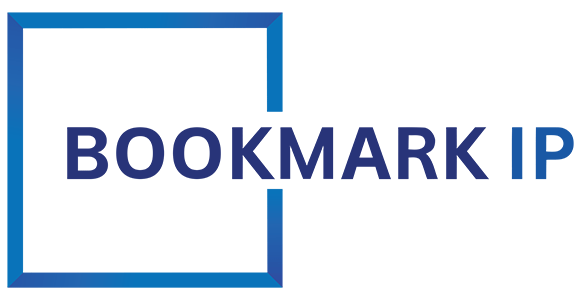Potential Challenges during and after the filing of Trademark Application
A trademark application is a formal request filed with the appropriate government authority to seek legal protection for a trademark. A trademark is a distinctive sign, symbol, logo, word, phrase, or combination thereof that is used to identify and distinguish goods or services of one business from those of others.
The purpose of a trademark application is to secure exclusive rights to use the trademark in connection with specific goods or services within a particular jurisdiction. By registering a trademark, the owner obtains legal protection and the ability to prevent others from using a similar or confusingly similar mark in the same or related field.
Filing a trademark application is a critical step in securing legal protection for a brand or logo. However, providing inaccurate or incorrect information during this process can have serious repercussions. In this article, we will explore the potential consequences that arise when wrong information is entered on a trademark application.
If wrong details are entered in a trademark application, it can have various consequences depending on the nature and extent of the errors.
CONSEQUENCES DURING APPLICATION
- The trademark office may reject the application if the incorrect details are material to the application process. For example, if the wrong name or address of the applicant is provided, it may render the application invalid and result in rejection.
- Errors in the application can lead to delays in the processing of the trademark application. The trademark office may request clarification or correction of the inaccurate information, which can prolong the application process.
- Providing incorrect information could potentially jeopardise the applicant’s rights to the trademark. If the details, such as the mark’s description, are incorrect, it may result in a registration that does not accurately reflect the intended trademark, leading to weaker protection or potential challenges from others.
- Incorrect details may require filing amendments or corrections, which can incur additional costs. These expenses can include government fees, attorney fees, or other charges associated with correcting the application.
- In some cases, intentionally providing false or misleading information in a trademark application can have legal consequences. It may be seen as fraud or an attempt to deceive the trademark office, which can result in not only the loss of the chance of getting the trade mark registered, but it could also result in penalties or even criminal charges.
CONSEQUENCES AFTER APPLICATION
After submitting the trademark application, there are several potential challenges that applicants may encounter. Understanding these risks can help you navigate the post-filing phase more effectively.
- Following the submission of a trademark application, the trademark office will review the application for compliance with legal requirements. They may issue an office action, which highlights concerns or objections that need to be addressed. These issues could include conflicts with existing trademarks, lack of distinctiveness, or incomplete or inaccurate information. Failure to respond adequately to office actions within the specified timeframe can also result in the refusal of your trademark application.
- Once a trademark application is published for opposition, third parties have an opportunity to oppose the registration if they believe it conflicts with their existing rights. Opposition proceedings can be time-consuming and costly. If an opposition is successful, it can lead to the rejection of your trademark application or the requirement to negotiate a settlement with the opposing party.
- Even after successfully registering your trademark, the risk of infringement still exists. Other businesses may use a similar or identical mark, leading to consumer confusion and potential dilution of your brand. Thus, such infringements leads to sending cease and desist letter which is a formal communication sent to an individual or entity that is believed to be infringing upon someone else’s trademark rights or filing of law suits to enforce legal rights and remedies. Monitoring the marketplace and taking swift legal action against infringers is crucial to protecting your trademark rights.
- Registering a trademark involves ongoing maintenance and renewal requirements. Failure to comply with these obligations can result in the cancellation or expiration of your trademark registration. It is important to keep track of renewal deadlines and fulfil maintenance requirements, such as submitting proof of continued use, to maintain your trademark’s validity. In many countries, including Australia or the United States, the initial registration period is usually ten years from the date of registration and failure to renew a trademark within the specified timeframe may result in the loss of your trademark rights, allowing others to potentially use or register a similar mark.
BENEFIT OF HIRING SOLICITORS TO FILE TRADEMARK APPLICATIONS
In the context of trademark matters, both solicitors and counsels can provide assistance and expertise. However, solicitors are typically more involved in the day-to-day aspects of trademark registration, management, and enforcement, including conducting searches, filing applications, responding to office actions, handling negotiations and more. Counsels, on the other hand, may be engaged for specialised legal opinions or to represent clients in more complex trademark disputes that require courtroom advocacy.
Solicitors are legal professionals who specialise in intellectual property law, including trademarks. They possess in-depth knowledge of trademark laws and regulations specific to their jurisdiction. Their expertise ensures that your trademark applications are prepared correctly, reducing the risk of errors or omissions that could lead to rejection or weaker protection. People should consider hiring solicitors to file and manage their trademark for several reasons:
- Solicitors can develop a comprehensive trademark filing strategy tailored to your specific needs. They can conduct thorough trademark searches to assess the availability and registrability of your desired trademark, minimizing the risk of potential conflicts or objections. They can also advise on the appropriate trademark classes and provide guidance on international filings if you plan to expand your brand globally.
- Solicitors are experienced in preparing and filing trademark applications with the relevant trademark offices. They understand the specific requirements, formats, and documentation needed for a successful application. Their attention to detail helps ensure that all necessary information is included and accurately presented to increase the chance of getting the trade mark registered as soon as possible.
- If any issues or disputes arise during the trademark registration process, solicitors can provide legal representation. They can respond to office actions, handle opposition proceedings, and negotiate settlements on your behalf. Having a solicitor by your side can help protect your trademark rights and navigate complex legal procedures effectively.
To minimise the risk of errors in a trademark application, it is advisable to carefully review and verify all information before submitting the application. Seeking assistance from a qualified intellectual property professional can also help ensure the accuracy and completeness of the application.
Our solicitors at Bookmark IP are more than happy to help. We care about your brand and want to help get your trade mark registered as soon as possible. Contact us now.





